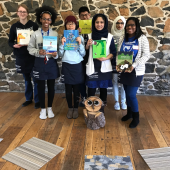
Abstract: A partnership between a university and local arboretum was expanded to include the campus library as a collaborator. Instead of having sustainability-themed programming between the two institutions focus on just the environmental components of the Sustainable Development Goals (SDGs), a library brings attention to literacy and information access across all aspects of the partnership. We share two public programs held between our university and an arboretum with strong involvement by the library in the development and execution stages, thereby increasing the connections across the SDGs and progress towards the 2030 agenda.
Continue ReadingThis essay presents an exploration of a wide spectrum of current ecocultural relations through the creative methodology and expression of performance. We present a script of a performance inspired by a seemingly simple prompt for a pedagogical free write exercise “When I say ‘nature,’ I mean…” The goal of the free write exercise is to illuminate and open up for questioning and transforming our cultural assumptions, embodied meanings, and social constructions associated with the idea of “nature.” The authors/performers reflect about the process of creation and their intimate struggles with environmental ideologies often hidden behind the veil of common sense, political posturings, or disciplined concealments. As an art form, performance allows engagement with imaginations that emerged as radical, thus insinuating the need for a more nuanced and free scholarship, as well as for embracing performance as liberating pedagogic activism.
Continue ReadingThis essay is a personal reflection on the practice of gardening with nature. I explore how my gardening practices have influenced the other species in my yard and the associated changes in myself. Of key importance is that my role as a gardener has allowed me to have a deeper relationship with nature.
Continue Reading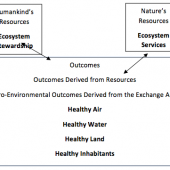
Abstract: In this paper we compare and contrast the Theory of Planned Behavior (Ajzen, 1985) with Social Exchange Theory (Homans, 1958) as conceptual foundations for eliciting pro-environmental behavior. We reason that Social Exchange Theory provides the better orientation because of its metaphorical power in casting humankind as being in a reciprocal relationship with nature rather than being in a superior position over nature. We illustrate our thinking by discussing ecosystem services (Melillo & Sala, 2008) as nature’s contribution to humankind in return for humankind’s responsible environmental stewardship.
Continue Reading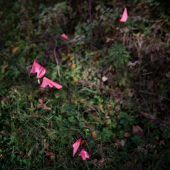
Abstract: As native Midwestern prairie and savannah landscapes continue to be destroyed, some environmentalists are working to reconstruct the prairie and savanna ecosystems that greeted European settlers a century and a half ago. This series of photographs engages those reconstructed landscapes and considers the fundamental question of what we consider natural. As many of these sites are used for educational and scientific purposes, this series also engages how the arts can contribute to our understanding of place.
Continue Reading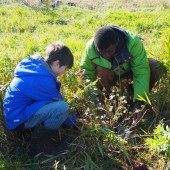
Table of Contents: JSE March 2015 — Sustainability: What’s Love Got to Do with It? PDF: Charles JSE March 2015 Love Issue There is a terrible challenge facing all of us who worry about the future of the Earth, and its inhabitants—human, domesticated and wild. That includes all of its living ecological inhabitants, and the […]
Continue Reading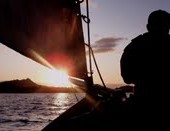
What began more than thirty years ago as a personal journey to explore my Scandinavian roots has evolved to a deep understanding of my mythopoetic connections with nature that has transformed my teaching. Through the process of exploring, learning, teaching and living in Norway, I have developed a field course for upper division students at Prescott College. From learning to sail traditional wooden boats to assisting with a harvest at a thousand year old farm, students discover the meaning of sustainability thr
ough direct experience, and how people have survived in a landscape that has directly influenced the Scandinavian cultural movements of Deep Ecology, and Friluftsliv or “Free Air Life”. The sharing of cultural wisdom handed down through generations of how to live sustainably with a landscape is rapidly disappearing and is key to our survival.
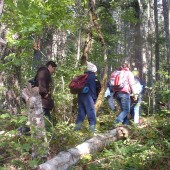
Two northwest naturalists offer a critical perspective on sustainability education by suggesting that, in order to inspire people enough to make changes in their perceptions and behaviors, sustainability education must embrace the central role of acquiring ecological knowledge through direct and shared experience in the natural world.
Continue Reading